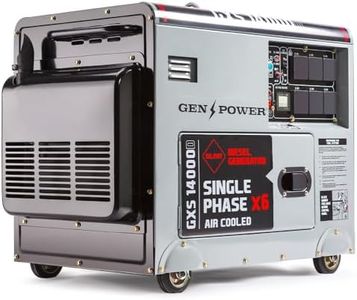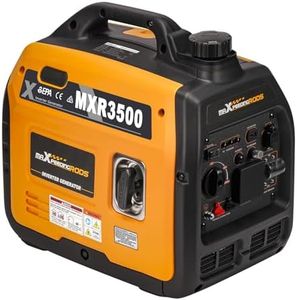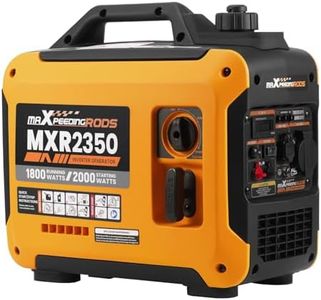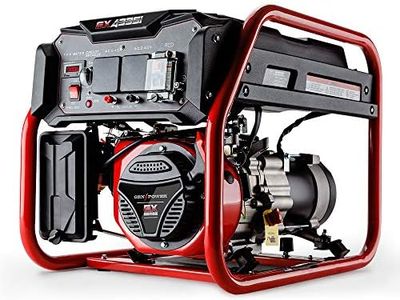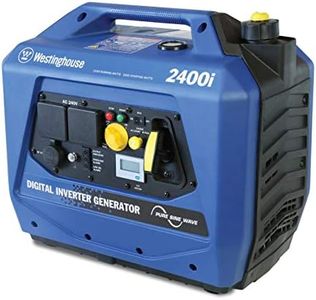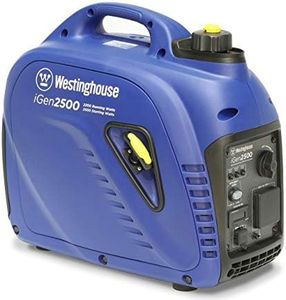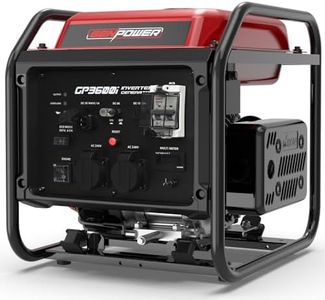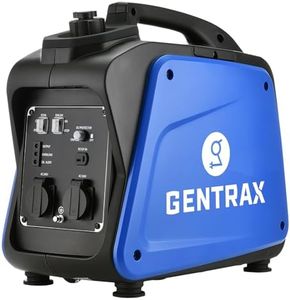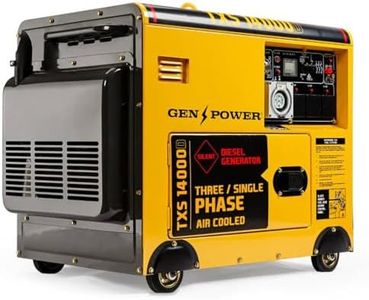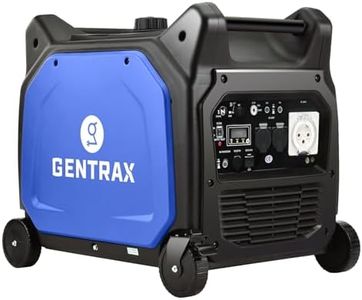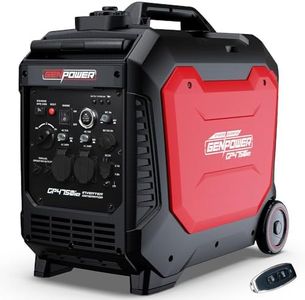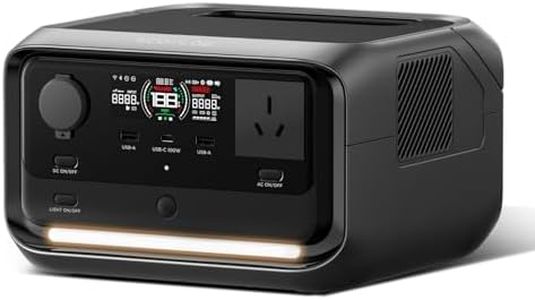We Use CookiesWe use cookies to enhance the security, performance,
functionality and for analytical and promotional activities. By continuing to browse this site you
are agreeing to our privacy policy
10 Best Portable Generators Rating
From leading brands and best sellers available on the web.By clicking on a link to a third party's website, log data is shared with that third party.
Buying Guide for the Best Portable Generators Rating
When choosing a portable generator, it's important to focus on how you'll be using it and in what environment. Portable generators can power anything from a few basic appliances during a power outage, to RVs, job sites, or remote events. The right generator for you depends on the amount of power you need, how portable you want it to be, and any specific features that will make your experience smoother.Power Output (Watts)Power output, usually measured in watts, tells you how much electricity the generator can supply at once. This is key because you need to match the generator’s capacity to what you plan to power—if you need to run a refrigerator, lights, and maybe a TV, you’ll add up their wattages to know your minimum requirement. Brands usually list both 'starting watts' (for the initial boost) and 'running watts' (what it provides consistently); you want to make sure the running watts fit your needs. For mainly charging small devices or running a few lights, lower wattages (under 2000W) may be enough, but for running household appliances or power tools, you'll typically want something between 2000W and 7000W. Consider making a list of what you’d power in an outage or while camping, and choose a generator with running watts slightly above that total.
PortabilityPortability describes how easy it is to move and transport the generator. Some units are lightweight and have handles, while larger ones feature wheels or even frames. Lighter, compact models (under 50 pounds) are best if you often need to carry your generator by hand for camping or tailgating. Heavier models, which can weigh over 100 pounds, typically need wheels and are suitable if you'll be moving it around a job site or just rolling it a short distance at home. Your choice should be guided by how often and how far you expect to move your generator.
Fuel TypeThe fuel type describes whether the generator runs on gasoline, propane, diesel, or a combination (dual-fuel or even tri-fuel). Gasoline is common and easy to find but has a shorter shelf life, while propane burns cleaner and stores longer though it often produces less power. Diesel generators are more fuel-efficient and durable but tend to be heavy and noisy, more common for higher power needs. Dual-fuel capability gives you flexibility in a pinch, like during emergencies. Consider your access to each fuel and how long you expect to run the generator to choose the right type for you.
Noise Level (Decibels, dB)Noise level is measured in decibels (dB) and determines how loud the generator sounds running. Quieter generators (under 60 dB) are ideal for camping, RVs, or neighborhoods, as they won't disturb those around you. Models in the 60–70 dB range are like normal conversation but could still be bothersome in quiet settings. Anything above 70 dB is fairly loud and more suited to construction sites or remote areas where noise isn’t an issue. Think about where you’ll use your generator—if it’s near people or indoors, look for lower noise ratings.
RuntimeRuntime tells you how long the generator can run on a full tank of fuel before needing a refill. This is usually listed at a specific load, like half-capacity. Shorter runtimes (under 6 hours) may be fine for events or occasional use, but for overnight use or during power outages, look for runtimes of 8–12 hours or more. Your ideal runtime depends on how long you want continuous power and whether you’ll be able to refuel easily during use.
Outlets and Power ConnectionsThe types and number of outlets tell you what you can plug into your generator—these often include standard household outlets, RV outlets, USB ports, and sometimes 240V outlets for bigger appliances. More and varied outlets mean more flexibility, especially if you have particular devices or hookups, like an RV or power tools. Think about what specific things you’ll need to power and check if the generator offers the right combination of outlets and connections.
